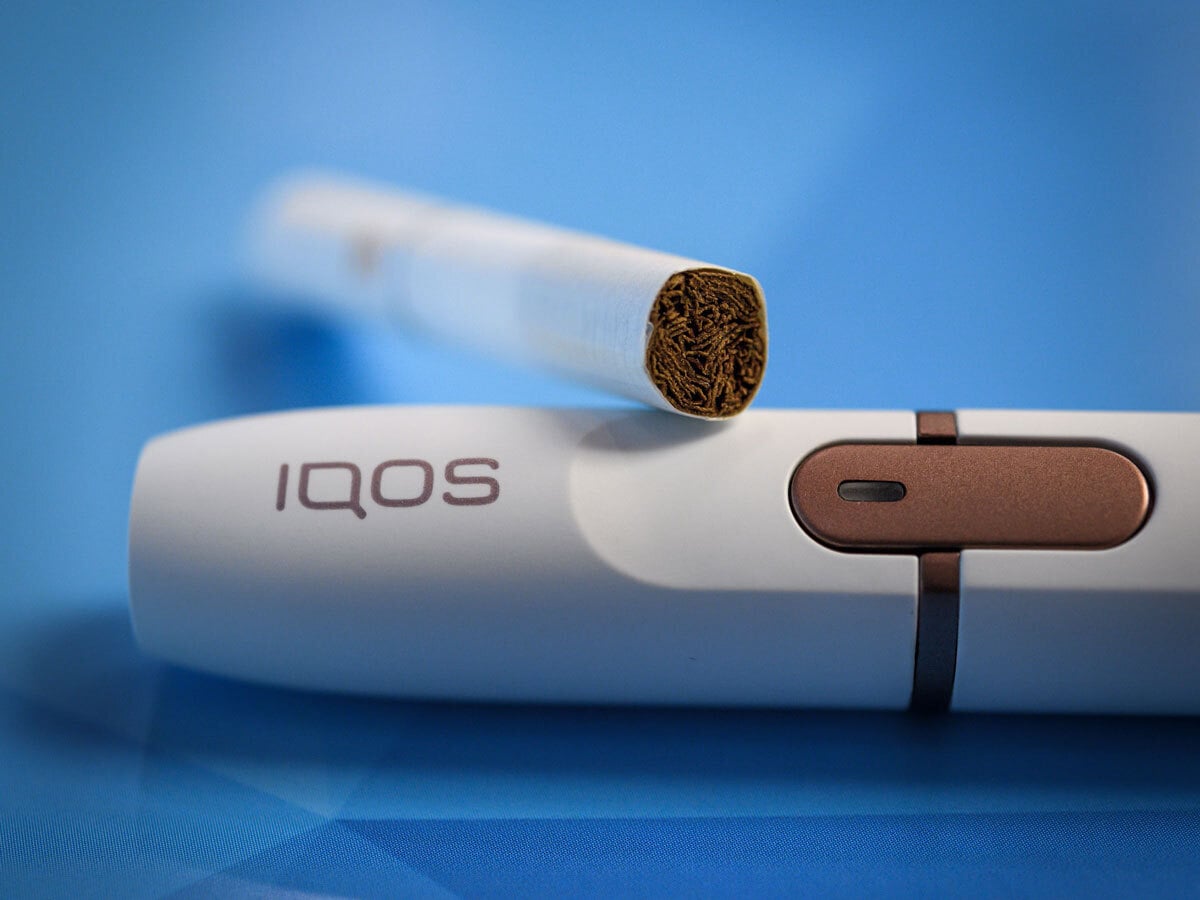Altria Group, British American Tobacco and Philip Morris are smoking giants that are hoping to pivot away from traditional combustibles to smoke-free products. But big tobacco’s involvement in the vaping industry has its critics, as does vaping itself.
- Big tobacco firms are targeting vaping to offset declining cigarette volumes.
- The global vape market is forecast to hit $182.8bn by 2030, growing at a CAGR of 30.6%.
- Tobacco stocks account for 16.7% of the AdvisorShares Vice ETF.
Big tobacco firms British American Tobacco [BATS.L], Philip Morris [PM], and Altria Group [MO] are looking to corner the vape market in a bid to revive revenue growth and offset weak cigarette sales.
Both Altria Group and Philip Morris, along with Japan Tobacco [2914.T], are said to be in discussion with e-cigarette maker Juul over a potential acquisition, reported the Wall Street Journal last month. Altria had held talks with Juul last year but failed to spark a deal following a potential bankruptcy filing on the part of Juul.
Last month, British American Tobacco announced a major revamp of its leadership team, which it hopes will help it capitalise on the shift away from cigarettes to alternatives, including vaping.
The Altria Group share price is up 3.3% year-to-date. The Philip Morris share price is up 1.1% in the same period, while British American Tobacco has fallen 7.8%.
Cigarette volumes drop off
These price movements are taking place against a backdrop of earnings reports showing top-line growth driven by vaping products.
British American Tobacco’s tobacco revenue rose just 2.3% in constant currency to £26.3bn in the year ended 31 December, while cigarette volume was down 5.1%. Sales from new categories, including vapes, rose 37% to £2.9bn. The company expects revenue to grow between 3% and 5% in 2023 and is forecasting a decline of some 2% for global tobacco industry volumes.
“New categories like vapes and heated tobacco are growing very quickly. The division is loss-making, but those are reining in, and profits are expected to start in 2024,” commented Derren Nathan, head of equity research at Hargreaves Lansdown, in reaction to the earnings.
Philip Morris has been positioning itself to become a “majority smoke-free company”. Its smoke-free segment, which includes e-vapour products, accounted for 36% of total revenue in the fourth quarter (Q4) of 2022 and 32.1% for the full year.
Altria Group’s Q4 revenue fell 2.3% year-over-year due to lower sales in its smokeable products segment, while full-year revenue fell 3.5%. Domestic shipment volumes of oral tobacco declined by 4.3%.
Regulatory headwinds
The demand for vape products is on the rise, with the global market forecast to hit $182.8bn by 2030, growing at a CAGR of 30.6%, according to a Research and Markets report published last month. However, the possibility of regulatory restrictions is looming over the industry.
“[While] there is evidence to suggest vaping is less harmful than smoking, it is not risk-free. Vaping has not been around for long enough to know the risks of long-term use, and the emergence of negative data could also throw a spanner in the works,” Nathan noted.
Earlier this month, the Royal Australian College of General Practitioners (RACGP) warned of big tobacco’s influence over smoking harm research and vaping. The body pointed out that Philip Morris had donated $166.2m to the Foundation for a Smoke-free World between 2019 and 2021, accounting for 99.5% of its revenue over this period.
Research funded by big tobacco firms could become a “smokescreen” for the industry’s switch from cigarettes to vaping, argued the RACGP.
Funds in focus: AdvisorShares Vice ETF [VICE]
Tobacco stocks can be attractive to investors during periods of high inflation and recession fears because of their steady growth, regular dividend pay-outs and defensive nature: people are likely to buy smoking and vaping products even if they’re reining in their discretionary spending.
Tobacco stocks account for 16.7% of the AdvisorShares Vice ETF [VICE] portfolio. Philip Morris has a 2.39% weighting as of 10 February. British American Tobacco and Altria Group have weightings of 1.16% and 0.94%, respectively. The fund is up 4.8% since the start of 2023.
All three stocks are also held by the Pacer Global Cash Cows Dividend ETF [GCOW]. As of Monday, Altria Group has been allocated 1.91% of the fund’s portfolio, while Philip Morris and British American Tobacco are weighted 1.88% and 1.69%, respectively. The fund is up 5.6% year-to-date.
Continue reading for FREE
- Includes free newsletter updates, unsubscribe anytime. Privacy policy





